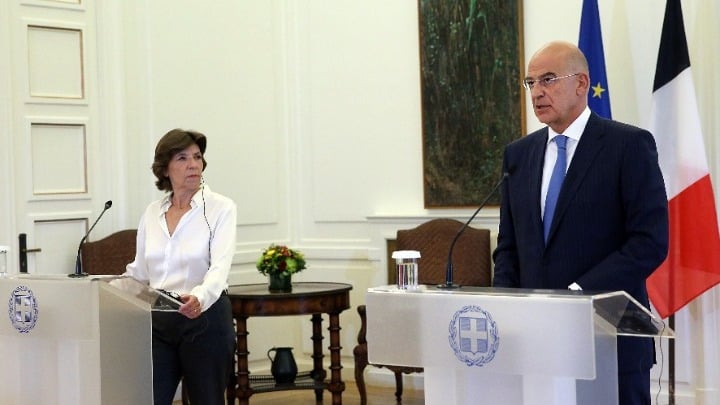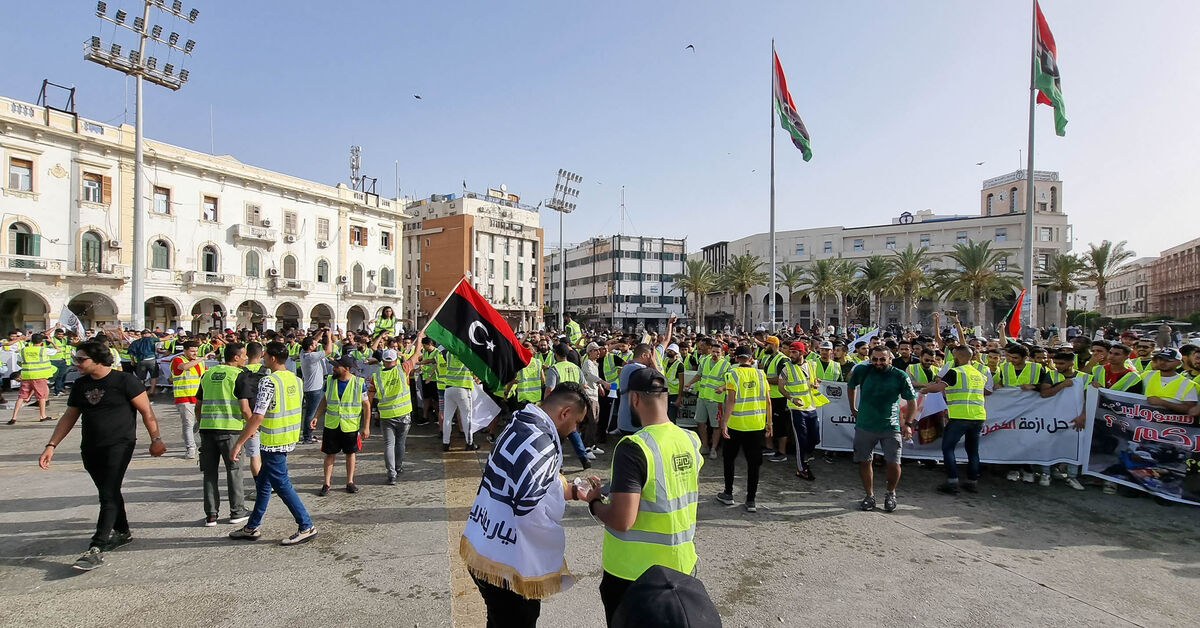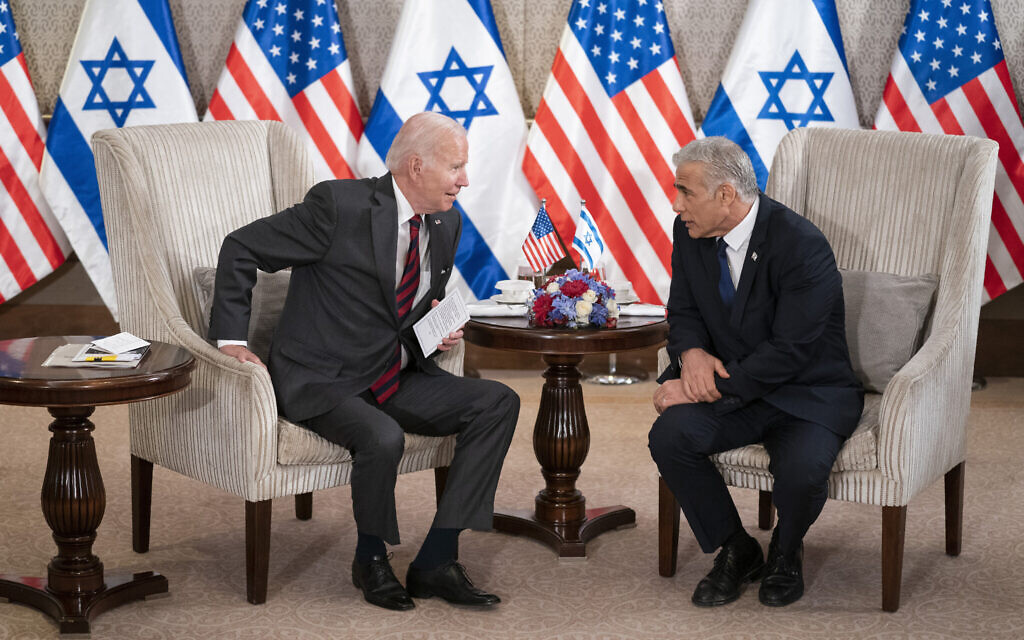Q: And are you saying that as of today, Israel is not ready for such a confrontation?
"The military is the strongest it has ever been, but when I see where the Iranians are going, the clouds that are darkening around us on the horizon, we should really take it seriously and prepare for it ahead of time, and now is that ahead of time.
"This warrants additional investments, and the sooner, more correctly, and more accurately we make them, the more prepared we will be. The more strength we project in the coming years, the more we will deter, and the more weakness we project, the more it may lead to attempts to challenge us. Therefore, only by investing will we make sure that we won't find ourselves dragged into dangerous adventures."
Q: What more is needed? Money? Equipment? Intelligence?
"I won't go into each of the details specifically, and if someone drags us into a war, surprises await him beyond what can be imagined because Israel is really strong; but the ability to conduct a complete, extensive, long campaign, 1,500 kilometers from here, requires additional measures, which are different from those required to conduct a campaign nearby. And in order for this ability to exist in the future as well in the face of the dramatic threat built around us, we need to invest now."
Q: And if we don't prepare, will we be jolted into action like it was with the Yom Kippur war?
"You've described it well. Unless we prepare, we will undermine our superiority that exists today and Israel's security preparedness for a future war, and we will require much larger investments in the future than those that can be invested in advance in an intelligent way."
Rely only on ourselves
Col. T. knows that there will be quite a few officials, especially in the Finance Ministry, who will claim that the IDF is exaggerating to get more funds. And although the military has been accused of crying wolf before, he asserts that this is a serious matter.
"We in the IDF are not detached from what is happening in the country. I have lived in the south for 15 years, we also stand in traffic jams with everyone, my children study in the education system. I think we need money for teachers and hospitals – the challenges are clear to me as well, and I know there are other urgent and important things as well. But the challenge I see we are about to face will require us first of all to be strong so that they don't mess with us, and if they accidentally do so – the results will be devastating for them. And unfortunately, when I look to the future, I definitely think it might happen and we should be ready for it."
T. is not too worried about the near future, however.
"Iran is not planning for the short term, not one year, not five, not even 10. It has patience, and it really doesn't care if it happens in 25 or 50 years. It is creating a spatial situation that will result in Israel collapsing. To create a Middle East without Israel, and it is investing in it every day. Look at the infrastructure in Iran. Everything is substandard because it is not prioritized. But there is money for the Revolutionary Guards and for strengthening and for the proxies and for terrorism. It has not stopped for a moment."
Q: What are they trying to do?
"Well, we've mentioned the nuclear bomb already. I think that as soon as the masks are removed, and Iran is strong enough, it will go nuclear. And they also want to arm all their proxies with unimaginable amounts of precision weaponry. That they will all have missiles and drones that can reach long distances. That Iran should have a Shiite succession, through Iraq and Syria, and Lebanon, which will undermine the Sunni majority.
"And they will want to challenge Israel through their proxies, without being harmed in Iran. Everyone will eventually pay a price and sacrifice for it – in Lebanon, in Gaza – and there, in Iran, they will remain unharmed. They want to exhaust us, and we cannot afford this to continue."
Q: Through air defense?
"That's another option. We talked about the fact that Iran is a growing superpower, and we already feel the challenge of the precision missiles around us, and this is also true of their defense systems. I think that in the coming years we will see them trying to negate our air superiority. To place such systems around us, on land and at sea."
Q: Are they good at it?
"They are very fast. They learn quickly, develop new versions, and improve. There is a learning competition here between us, and they present us with a difficult challenge in this field."
Q: An average Israeli would say that we are excelling. That we are targeting them in Iran, Turkey, Syria. But that is not how you seem to see it.
"When you look at how we deal with Iran, then the picture seems as you describe it now. But if we look at the ever-evolving picture, we will see that Iran's situation today is immeasurably better than it was in 2010, and much better than it was in 2000. And in the future it will only get better."
Col. T. also believes that the Iranian threat shouldn't just be a concern for Israel. We may be at the center of the issue, but the Islamist Republic's nuclear aspirations will affect the entire Middle East, but also Europe and the United States.
"This should worry the whole world, and we must try to develop partnerships, but we must act as if we are alone in this story because we don't know right now who will help us," he said.
Israel must also make sure to make it clear that just like it won't allow Iran to develop a nuclear weapon, it also won't stand for its efforts to arm proxies in the region, especially with precision weapons, he said. "This means that we will not allow ourselves to be surrounded by enemies and/or conventional weapons systems in unacceptable quantities, to the extent that we may have to act proactively as we are doing in Syria to stop the threat before it becomes greater. We must understand that the longer we postpone the confrontation, the more devastating the results will be."
"I'm still nervous before operations"
What Col. T. loves the most is combat flying. The F-35, he says, is an amazing aircraft that he has already flown on many operations in a variety of targets in the region.
"The privilege to fly and protect is in the blood of every pilot. Sit there at low altitude, you and this block of steel, and protect the country."
Q: But when the operation actually begins, what do you feel?
"When I was young, I was sure that only I – as a young pilot – get nervous before an operation, and that all the veterans are no longer nervous about this thing. Then you mature and you find that you are exactly as nervous as when you were young.
"But from the moment the engines go on, the nervousness passes – and you're just in the middle of the mission. Then you find yourself hundreds of kilometers from here, and you're focused on how to perform the mission best."
Q: Let's talk about the F-35s for a moment. Israel is a pioneer in the use of this aircraft in the world, and I don't think there are many fighters with your operational record.
"Without a doubt, this is the best plane in the world today. It also combines all the capabilities of fighter planes from previous generations, in carrying armaments, weapons and such, as well as stealth and survivability capabilities that allow it to reach places that other planes cannot."
Q: Let's go back to Iran. Are you concerned about being called an alarmist?
"It does worry me. That the insights that sit in my head, and with us in the security establishment, have not yet permeated the upper echelons. I'm not trying to panic here, that's not the point. My words are based on knowledge, on experience. It's something rational that's based on intelligence."
Q: And what do you think Iran will think once they read this interview?
"That Israel takes them very seriously. I hope they don't get confused and make strategic errors and make the mistake of thinking that Israel is a small and weak country. They simply don't understand what strength Israel has, both in the military and in human capital.
Q: Hezbollah Secretary-General Hassan Nasrallah's cobwebs.
"They simply don't understand us. They don't understand our motives, they don't understand where we came from and they don't understand that we don't have another country. And their quest to threaten Israel to the point of existential threats could push us into a corner, and they will regret it very much."
Q: And why do you think the world doesn't seem to share your concern?
"It's hard to convince someone who doesn't live in the region and is not exposed every day, and doesn't have the level of intelligence we have and simply doesn't understand. Israel is at the forefront, due to its geographical location, but I think we might be the first to be exposed, but the Iranians are looking at exporting the revolution to everyone.
"We tell them that we are not crying wolf. This is the reality, and all of us should be prepared properly. There are great opportunities here in the region – the Abraham Accords, the gas discoveries – that we need to leverage as much as possible with our allies, led by the US. Our role in the security system is to allow all of this to grow, because the more the economy prospers, the more we can do in the military campaign as well."
Q: And yet you said earlier that in the end, we should only count on ourselves.
"I don't know if it means that we are alone, but we do have to prepare as if we were. Of course, make every effort to create partnerships, but rely only on ourselves."
https://www.israelhayom.com/2022/09...ence-to-warn-of-unprecedented-iranian-threat/












/cloudfront-us-east-2.images.arcpublishing.com/reuters/O3AYT3CUXNN57HUH35A35EUHJQ.jpg)
